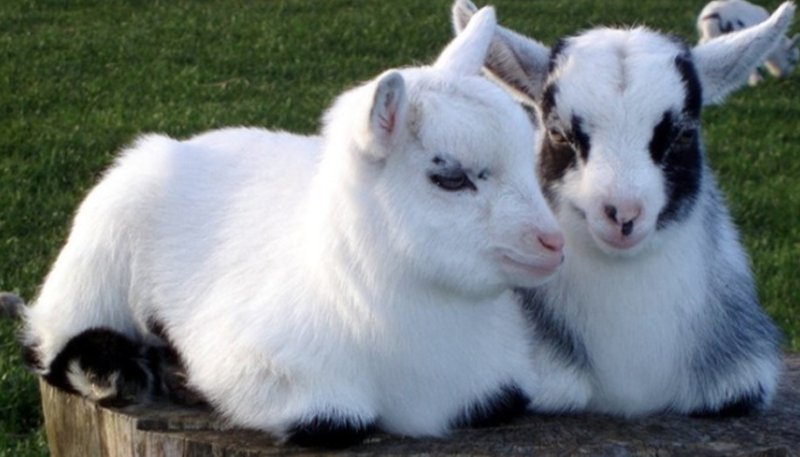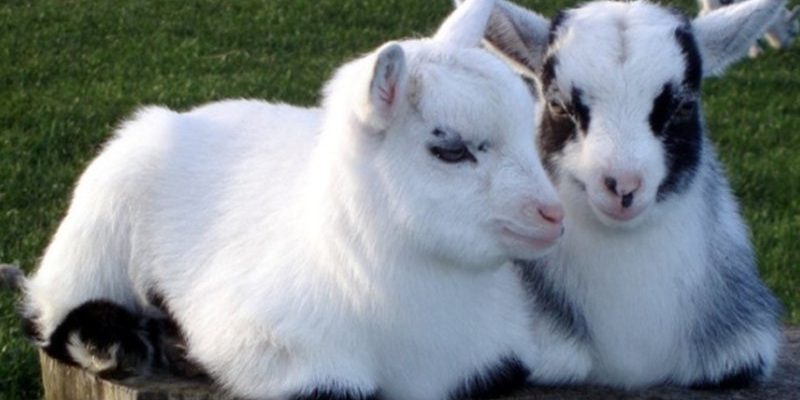
Caring for pygmy goats means being aware of what health concerns they might face and learning how to prevent them. You know that feeling when you wish you could just press a button and fix something? Well, when it comes to your goats, knowledge becomes that magic button. Let’s dive into common health issues in pygmy goats and explore practical ways you can keep your furry friends healthy and happy.
Digestive Issues in Pygmy Goats
Digestive problems can be common in pygmy goats, primarily due to their unique and sensitive digestive systems. These little goats are ruminants, which means they have a four-chambered stomach that ferments their food. If they’re given the wrong diet—like too much grain or sudden changes in feed—they can end up with issues like bloating or diarrhea.
Signs of digestive distress include decreased appetite, signs of discomfort, or unusual behavior. If you notice your goat not acting like its usual self, it’s worth investigating. To prevent these issues, maintain a consistent diet that includes high-quality hay mixed with a small amount of grain. Be cautious with treats, too—stick to healthy options like fruits and veggies in moderation.
Tips for Digestive Health
– Provide Fresh Water: Always ensure your goats have access to clean water. Staying hydrated is crucial for proper digestion.
– Monitor Dietary Changes: Gradually introduce any new feeds to avoid shocking their systems.
– Include Forage: Encourage natural browsing habits, as this is vital for their digestion and overall health.
Parasite Infestations
Parasites are like uninvited guests—you might not notice them until they’ve made themselves at home. Pygmy goats are particularly prone to worms and external parasites like mites and lice. These critters can cause a variety of problems, including weight loss, skin irritation, and lethargy.
You might notice signs like excessive scratching, rough coat, or anemia (look for pale gums). Regular deworming is essential, but it’s important not to overdo it. Too much deworming can lead to resistance. It’s a balancing act!
Preventive Measures Against Parasites
– Regular Fecal Checks: Work with a vet to perform fecal exams so you know if your goats need deworming.
– Clean Living Environment: Keep their pens clean and dry, as moisture attracts parasites.
– Rotate Pastures: If possible, rotate grazing areas to break the life cycle of parasites.
Respiratory Infections
Pygmy goats can be sensitive to respiratory infections, especially in damp or cold weather. Just like us, they can catch colds, which can lead to more serious issues if not treated properly. Symptoms to watch for include coughing, nasal discharge, and difficulty breathing.
To help your goats breathe easy, make sure their living area is well-ventilated but protected from drafts. Keeping them stress-free also supports their immune system, which is vital during seasons when respiratory infections thrive.
How to Prevent Respiratory Problems
– Good Ventilation: Ensure adequate airflow in barns and shelters, especially in winter.
– Watch the Weather: If it’s too chilly or rainy, provide extra bedding to keep them warm and dry.
– Vaccinations: Talk to your vet about vaccinations for diseases that can affect respiratory health.
Foot Health Issues
Pygmy goats might have small hooves, but their foot health is crucial. They can suffer from problems like hoof rot or overgrown hooves if not maintained properly. Imagine wearing shoes that don’t fit—eventually, that’s going to hurt!
You should be looking for signs like limping or reluctance to move. If it looks like they’ve got some “goat blues,” it’s time to check their feet. Regular hoof trimming is vital to prevent discomfort and infections.
Preventing Hoof Problems
– Regular Trimming: Trim their hooves every 6-8 weeks, or as needed, to keep them healthy.
– Dry Environment: Keep their living areas dry to reduce the risk of hoof rot.
– Monitor Their Movement: Watch how your goats walk and play; any changes might indicate hoof issues.
Skin Issues and Allergies
Pygmy goats can develop skin issues or allergies just like humans. They might have reactions to certain plants, insects, or conditions. Symptoms include itching, rashes, or hair loss. It can be uncomfortable for them and alarming for you as a caretaker.
Here’s the thing: keeping an eye on their skin and coat condition can help you catch issues early. Regular grooming not only helps you manage their coat but also allows you to spot potential problems.
How to Prevent Skin Problems
– Regular Grooming: Brush them often to help remove dirt, debris, and potential allergens.
– Check for Irritants: Monitor their living environment for potential irritants like certain plants or materials that could cause reactions.
– Baths When Necessary: If they get particularly dirty or have skin issues, a special goat-safe shampoo can help.
Vaccination Needs
Vaccinations are like a safety net for your pygmy goats. They protect against several serious diseases that could otherwise be detrimental to their health. Consistent vaccinations not only keep your goats safe but also help prevent the spread of disease in a herd.
Consulting with a vet about a vaccination schedule is key. They’ll recommend shots for things like CD&T (Clostridium perfringens and tetanus) and others based on your region.
Key Points on Vaccination
– Know the Schedule: Make sure you understand when and what shots your goats need.
– Keep Records: Maintain good records of vaccinations to ensure your goats stay up-to-date.
– Yearly Check-Ups: Regular vet visits can help catch any potential health issues before they become serious.
Caring for pygmy goats is a delightful journey filled with playful antics and the joy of companionship. However, it’s essential to be aware of the common health issues they face and take a proactive approach to prevention. By focusing on their diet, environment, and regular check-ups, you can help keep your little friends healthy and thriving.
Honestly, the better you understand their needs, the more you’ll enjoy your time together. Just like any relationship, being attentive and informed goes a long way in ensuring their well-being. So, roll up your sleeves, get to know your pygmy goats, and enjoy the wonderful bond you’ll create together!

